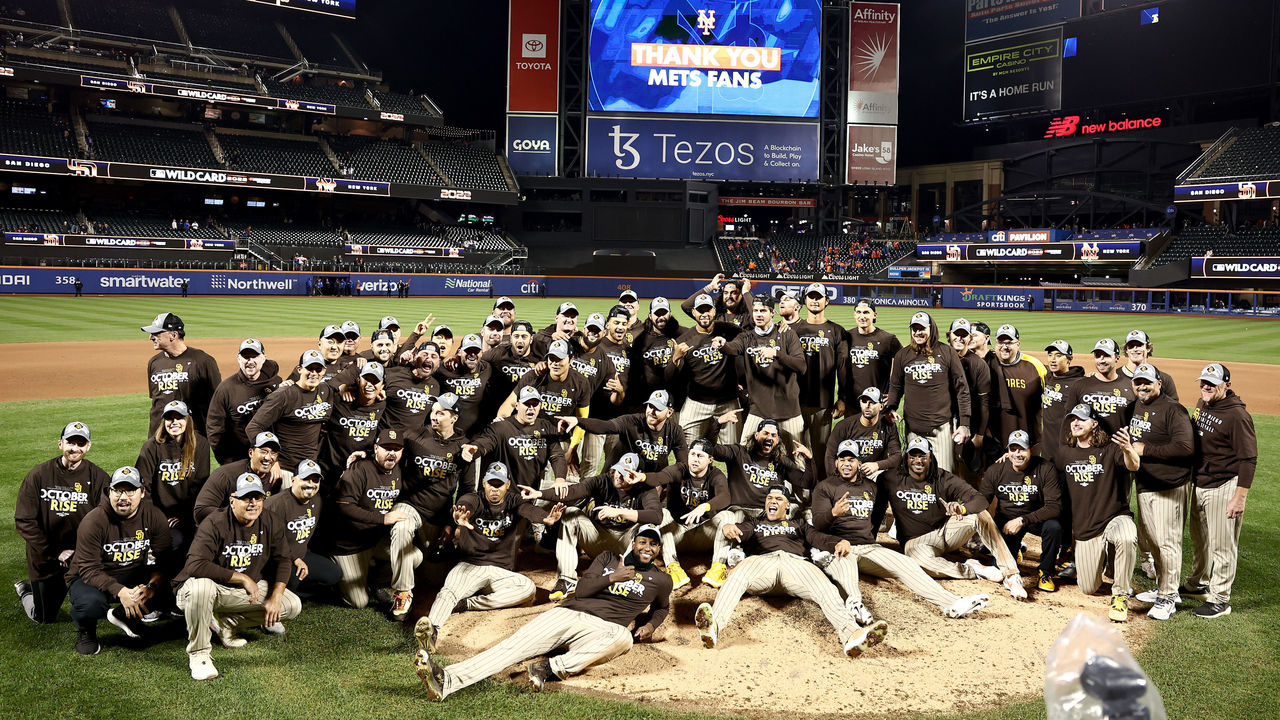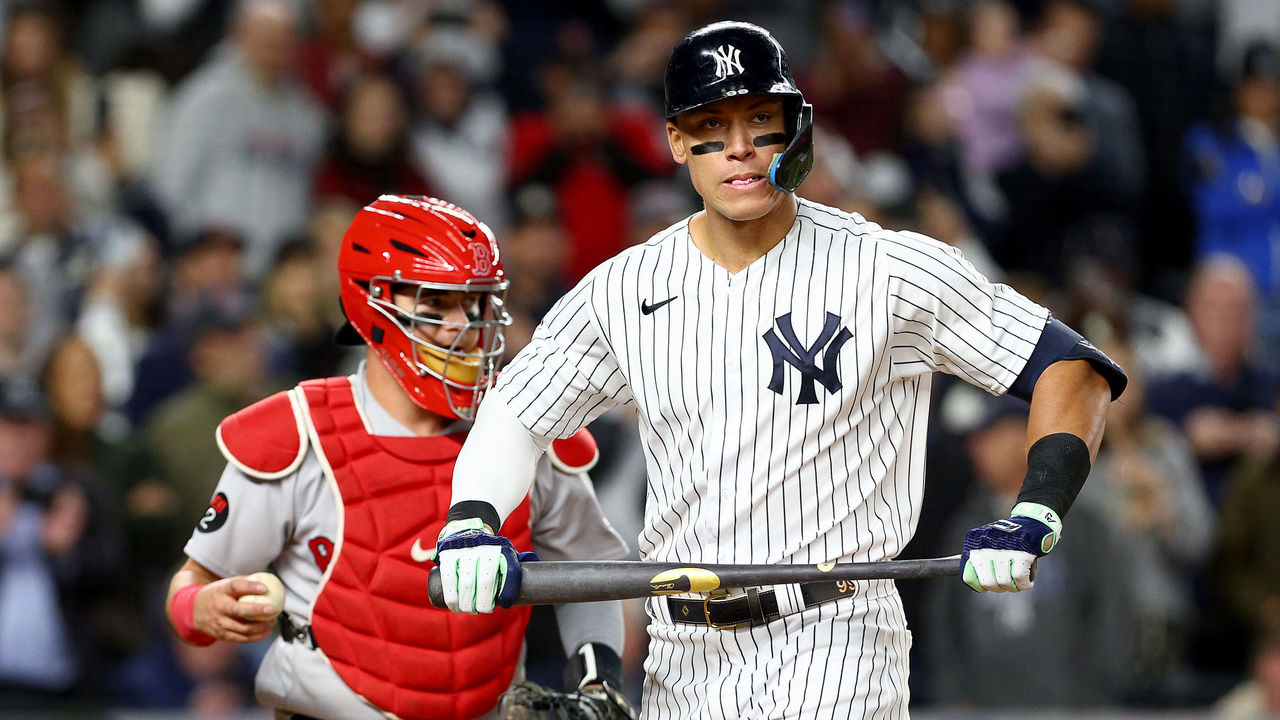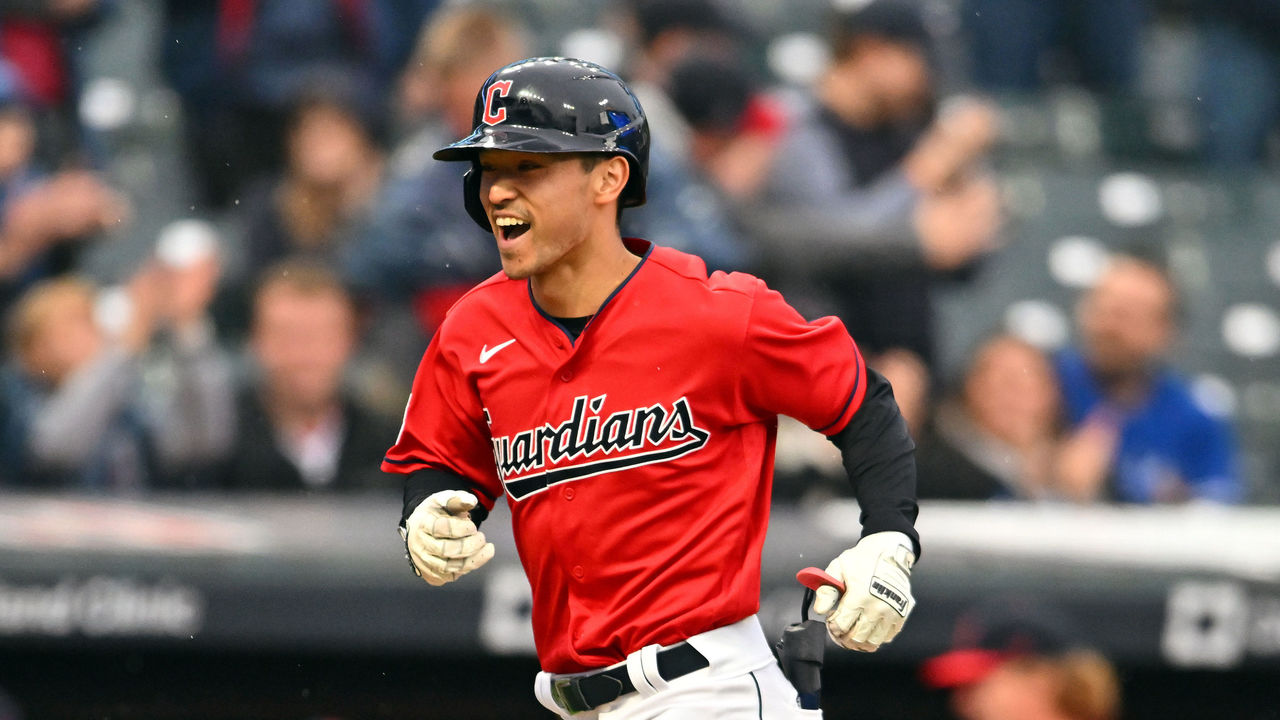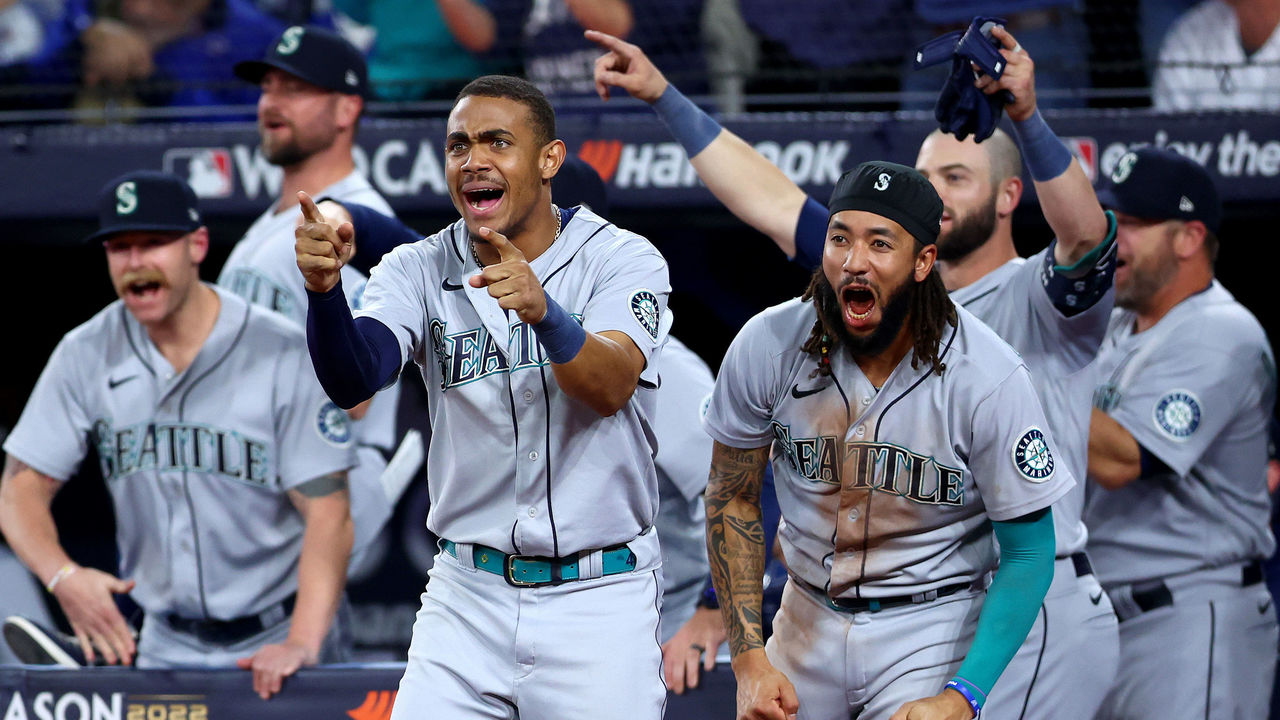Is extra rest an advantage in the playoffs? It's ... complicated
One of the changes in the first year of Major League Baseball's new, expanded playoff format is that the best regular-season teams have more rest before they begin postseason play.
The No. 1 and No. 2 seeds in each league bypassed the wild-card round, which was expanded from a single-game, play-in affair to a best-of-three series. This gave the top two seeds in the AL and NL a five-day break before the division series beginning Tuesday.
There are great advantages to a first-round bye. In addition to avoiding first-round elimination, relievers have more time to recover and teams can set fully rested starting rotations. But in a sport where timing and rhythm seem so important, these teams also have had their longest layoffs from competition since the All-Star break (which affects every team equally). Their opponents, meanwhile, each enter on the heels of a series victory.

We were curious whether there was a benefit or disadvantage to having this extra time off in the postseason. theScore examined Retrosheet data dating back to 1995, the beginning of the wild-card era, to identify all the teams that had four or more days of rest in the postseason.
We found 88 instances overall, but many of them involved two rested teams playing each other. For example, both League Championship Series in 2018 involved teams with four or more days' rest: The Dodgers and Brewers had four days between series, and the Red Sox and Astros had five days each.
So we pared it down to the 40 series where only one team had four or more days of rest, which is the same circumstance the Dodgers, Braves, Astros, and Yankees find themselves in this week.
We might expect any such rest - or rust - issues to be most apparent in the first game back after a layoff (although rested teams generally ought to be able to use their best starting pitching option in Game 1).
In the 40 series, the teams with at least four days of rest went 19-21 in Game 1s, and they only won 17 of the 40 series. Of the 23 series where the more rested team lost, 13 of those teams lost to an opponent with a worse regular-season record.
Extra rest was less likely to hinder teams that had a significant regular-season advantage in the matchup, however. Teams that had won at least 10 games more than their opponent were 10-1 in Game 1s and 8-3 in the series overall.
The interesting results come from teams that were within nine games of each other in the regular season. The better-rested teams were 8-19 in Game 1s and 7-20 in the overall series results. The teams from that group that played Game 1 at home went 4-11 and won just five of the 15 series.

Late in the season, I asked veteran St. Louis Cardinals pitcher Adam Wainwright whether too much rest can negatively affect performance.
"It can matter, that's for sure," Wainwright said. "We've seen teams that play to the last day trying not to die, fighting for that wild-card spot. We've seen those teams win in the postseason because they have that urgency going into it. We've seen teams that have No. 1 seeds sit out for a few games, or where a team has swept and the other side goes seven, and they kind of lose the momentum they had."
The 2007 Colorado Rockies had a nine-game break between the NLCS and World Series, the longest layoff in this dataset. They were swept by the Boston Red Sox.
"But I also think that baseball is a funny, weird game," Wainwright said. "Everything has to go right. Timing has to be perfect for whoever is playing well; they have to be pitching well, getting timely hits. And those things come in ebbs and flows in baseball."
We also looked at series where both teams had layoffs of four-plus days, but one team had more rest than the other. There were 16 such instances.
Again, the more rested teams fared worse, going 6-10 in series meetings, although they split Game 1s 8-8.
Is MLB inadvertently placing its best regular-season teams at a slight disadvantage with too much rest?

In the Guardians' champagne-soaked clubhouse on Saturday evening, I asked Cleveland rookie Steven Kwan whether having to play a wild-card series could give his team an advantage against the New York Yankees.
"I think it can be argued either way," he said. "Some people need a long break, some people need to keep playing."
Only one division series this year features two teams that were within nine wins of each other during the regular season, the situation where extra rest seems to be a detriment: Yankees versus Guardians, who were separated by seven wins. The other three matchups are between teams that finished at least 15 games apart in the win column.
A modest proposal
The expanded-wild card round appeared to accomplish much of what it was intended to do, even though only one home team, the Cleveland Guardians, advanced.
One elite starting pitcher can no longer give a team an outsized advantage in a single-game play-in. The expanded format adds an element of fairness for a sport whose regular season emphasizes a large sample. And even though there are more postseason spots, there's arguably more incentive for regular-season success, since the weakest division winner is no longer guaranteed a free pass to the division-series round.
But to make the postseason more like the regular season, the wild-card round ought to be condensed to reduce rest times and shorten a playoff calendar that's bleeding into November more often.
There's actually a way to expand the wild-card round, give the better seed an even greater advantage, and keep the round to one day. How? By adopting the KBO's wild-card format.
In South Korea's baseball league, the top-seeded wild card only needs to win one game while the lower seed must win twice to advance. Potential doubleheaders would allow the AL and NL to each complete the round in a single day.
It could also produce great theatre.

Imagine up to eight wild-card games being played on a single day for each league. The overlapping games would make for frenetic action and whip-around television coverage like the opening of March Madness or NFL RedZone. The wild-card round could become MLB's two most compelling days of the year. Maybe the New York Mets could even sell out an elimination game (as they failed to do Sunday night).
Ideally, the postseason would mirror the way the regular season is played. But MLB arguably changes more dramatically in its postseason phase than other sports. More travel days and more urgency mean the best pitchers take on a greater share of innings. The nature of the game changes in a way it doesn't in the NFL where, say, Patrick Mahomes throws the overwhelming majority of passes for the Kansas City Chiefs in both the regular season and postseason.
In this year's format, the new layoff between the end of the season and the division series for top seeds - which is as long as the All-Star break - sets the postseason apart in another way.
The new wild-card round may be an improvement, but some tweaks could make it better.
Travis Sawchik is theScore's senior baseball writer.